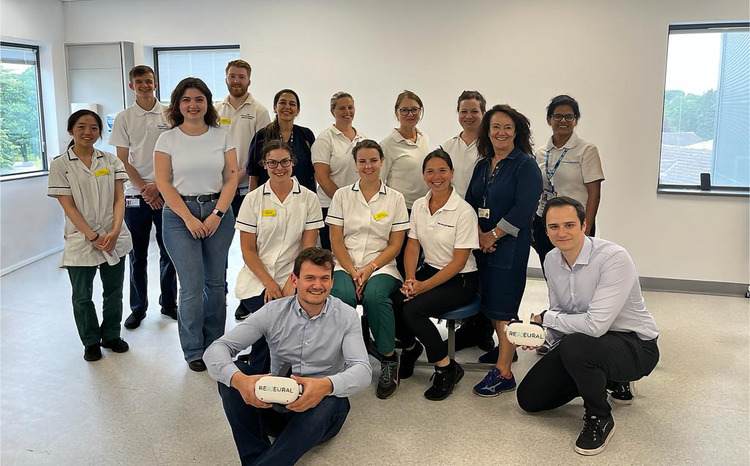NHS plan ‘turning point’ for IT – Kelsey
- 24 October 2014

NHS England’s Five Year Forward View could provide a “turning point” for the information revolution, Tim Kelsey has said.
The plan, released yesterday by NHS England and other national bodies, identifies “exploiting the information revolution” and “accelerating innovation” as two enablers for its ambition to close the NHS funding gap.
It argues the gap, which could otherwise reach £30 billion by 2020-21, can be closed by reducing demand on the NHS by improving public health and increasing efficiency across the service by implementing new models of care.
The document says the National Information Board, which Kelsey chairs, will publish a series of ‘road maps’ later this financial year that will go into more detail on who will do what to “engage the public” with new apps, create new , integrated electronic health records, and “transform digital care”.
Kelsey, NHS England’s director for patients and information, told EHI the Five Year Forward View is “the first time the NHS has spoken with a single voice like this”, and could significantly improve the health sector’s use of data and technology.
“This is a really important moment, where the national leadership of health and care is putting their weight behind the opportunities of the information revolution.”
Kelsey added that a framework for action will be published by the board in November to “put flesh on the bones” of the plan and explain how it will move from vision to implementation.
“I hope this will be a turning point in bringing a real, tangible focus to a set of principles which, to be honest, people have argued for for quite some time and we need to make a reality.”
His remarks will be welcomed by many in the health informatics community, who praised the IT aspects of the Five Year Forward View; but told EHI more details are needed urgently.
Ewan Davis, director and founder of HANDI Health, said he is happy with the plan “as far as it goes” but disappointed by the lack of specifics provided.
“There’s nothing in there that I disagree with, but the devil is in the detail – quite a lot of the stuff they say about digital is all motherhood and apple pie.”
Davis said the plans comments about the need to find a balance between an overly centralised approach to NHS IT procurement and “letting a thousand flowers bloom” are “exactly on target”.
“Clearly it didn’t work when we tried to do it all nationally, and equally it doesn’t work when you try to do everything locally.”
But he wanted more detail on what services will be provided nationally, and who will create standards to tie systems together.
Natalie Bateman, head of health and social care at TechUK, said the organisation is happy with the report’s focus on “utilising this kind of information revolution” to deliver improved health and care.
But she said it also thinks that more information is necessary to make it a success. “We’re really looking forward to [the NIB strategy] because it will deliver the real detail.”
Paul Cundy, chairman of the British Medical Association and Royal College of GPs’ IT committee, said he supports the plan’s aim of balancing central and local IT solutions.
“If we’re going to have interoperability, we need a central framework, and I would agree that it’s best managed centrally.”
However, Dr Cundy said he is concerned about whether politicians can remain “hands off” and allow primary care to continue to develop its own IT solutions. “We just need to be allowed to keep doing what we’re doing.”
Professor John Williams, director of the health informatics unit at the Royal College of Physicians, said some of the proposals, such as patient access to records, have been often discussed in the past but need to be outlined in more detail if they are to succeed.
“Some of it does seem to repeat things that were said ten years ago, but we don’t mind that because they’re the good bits – we just need to define exactly what they mean.”
Professor Williams said any work on integrated care and changing care models must be underpinned by strong standards, while professional leadership from bodies such as the RCP will also be essential.
Tim Kelsey will be one of the keynote speakers at EHI Live 2014, which takes place at the NEC in Birmingham in just ten days – from 4-5 November.
Professor Jane Dacre, the president of the Royal College of Physicians, will be talking about its vision for the future of healthcare and about its IT work, at the CCIO Leaders Network Annual Conference that takes place alongside the show, on 5 November. And information sharing will be a focus of the CCIO Leaders Network Annual conference that takes place the previous day. Registration for the keynotes, co-located conferences, feature areas, and exhibition is free and open now.





